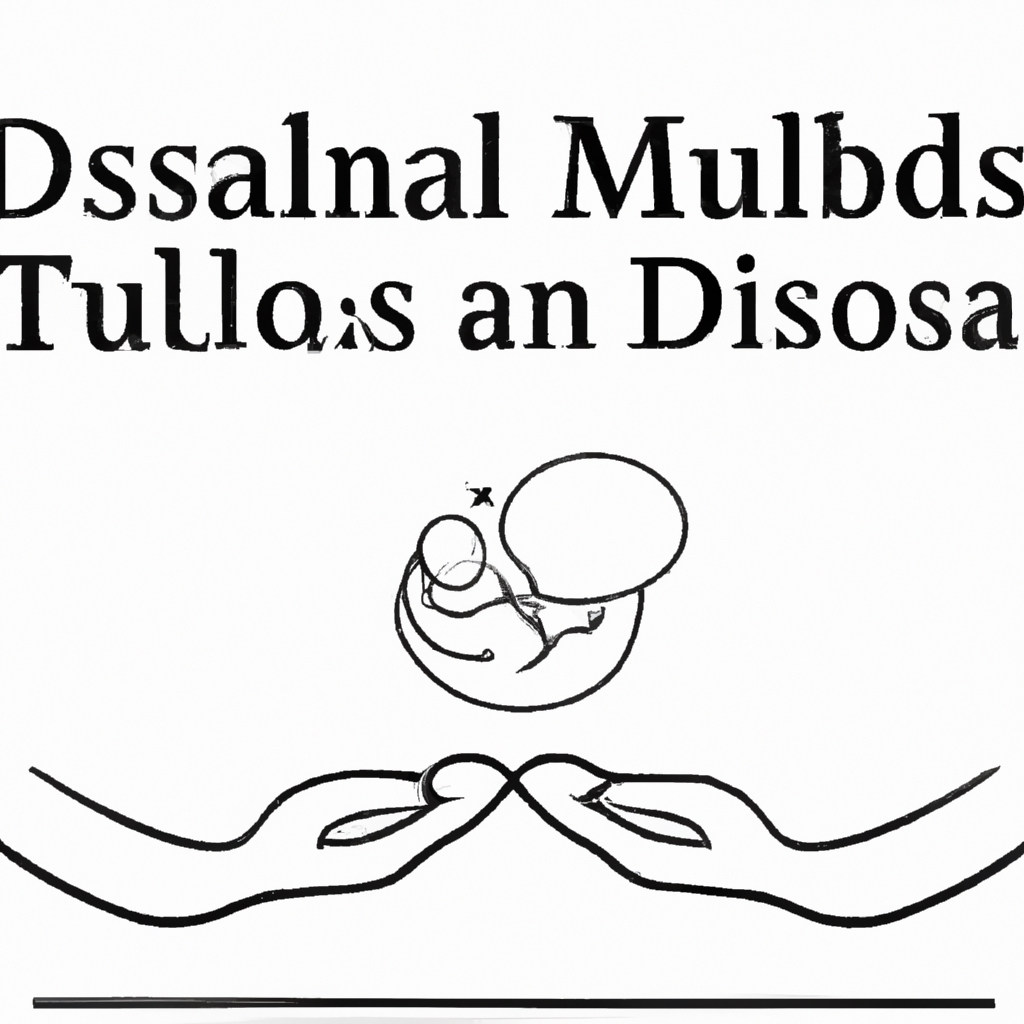In the delicate realm of childbirth, the presence of a trusted companion can make all the difference. But when it comes to deciphering the world of birth support, navigating between the roles of doulas and midwives can often feel like tiptoeing through a labyrinth of choices. Gazing upon the mysterious landscape of birth assistance, one might wonder, who holds the key to ushering new life into this world? In this article, we embark on an enlightening journey, shedding light on the nuanced dissimilarities and harmonious synergies between doulas and midwives. From unwavering emotional support to clinical expertise, prepare to untangle the threads of maternal care, empowering yourself with knowledge and understanding of these remarkable support options.
1. The Guide to Enhancing Your Birthing Experience: Unraveling the Roles of Doulas and Midwives
When it comes to welcoming your little one into the world, having a supportive team by your side can make all the difference. In your journey towards a memorable birthing experience, understanding the distinct roles of both doulas and midwives can empower you to make informed decisions and ensure the best possible care for you and your baby.
Doulas:
What is a doula?
A doula, deriving from the Greek word meaning “a woman who serves,” is a trained birth companion who provides continuous emotional, physical, and informational support to expectant mothers and their partners. Unlike medical professionals, doulas do not perform medical tasks but focus on providing compassion, encouragement, and advocacy throughout the birthing process.
Benefits of a doula:
- Reduced risk of medical interventions during birth
- Increased satisfaction with the birthing experience
- Shorter labor duration
- Enhanced communication between the laboring person and medical staff
- Emotional support during both prenatal and postpartum periods
Midwives:
What is a midwife?
A midwife, stemming from an ancient tradition, is a healthcare provider who offers comprehensive care to pregnant individuals before, during, and after childbirth. Midwives prioritize a holistic approach, emphasizing the natural progression of labor while monitoring the health and well-being of both the mother and baby.
Benefits of a midwife:
- Individualized and personalized care
- Promotion of natural childbirth
- Emphasis on overall health and well-being
- Providing education and support for informed decision-making
- Lower rates of medical interventions such as C-sections
By working together harmoniously, doulas and midwives offer complementary roles, placing the well-being and desires of the birthing person at the forefront. Whether you choose to have both a doula and a midwife or exclusively one, their collective support aims at enhancing your birthing experience, promoting a positive outcome, and ensuring you feel empowered during this magical journey into motherhood.
2. Bridging the Gap: Decoding the Distinctions between Doulas and Midwives
When it comes to pregnancy and childbirth, women have a range of options for their care and support. Two common roles that often come up in this discussion are doulas and midwives. While both play crucial roles in aiding women through the birthing process, it’s important to understand the distinctions between the two.
Let’s start with doulas. A doula is a non-medical professional who provides emotional, physical, and informational support to expectant mothers and their families before, during, and after childbirth. Unlike midwives, doulas do not provide medical care or perform clinical tasks. Instead, their role focuses on advocating for the woman’s preferences, offering comfort measures such as massages and breathing techniques, and ensuring that the woman feels empowered and supported throughout the entire birthing experience.
Midwives, on the other hand, are healthcare professionals who specialize in providing comprehensive prenatal, childbirth, and postnatal care. They are trained in both medical and non-medical aspects of childbirth and are licensed to deliver babies in various settings, including homes, birth centers, and hospitals. Midwives are skilled in managing low-risk pregnancies and have the capability to offer a wide range of medical interventions, such as administering pain relief medication, conducting vaginal exams, and monitoring fetal well-being.
To summarize the differences between doulas and midwives:
- Role: Doulas focus on emotional and physical support, while midwives provide medical care.
- Clinical Tasks: Doulas do not perform medical tasks, whereas midwives are trained to carry out necessary clinical procedures.
- Setting: Doulas can support women in any birthing setting, whereas midwives can provide care in multiple settings and deliver babies.
It is worth noting that both doulas and midwives are valuable members of a woman’s birth team, and in many cases, they work together to provide holistic care. Some women prefer to have both a doula and a midwife, benefitting from the emotional support and advocacy skills of a doula alongside the medical expertise and guidance of a midwife. Ultimately, the choice between doulas and midwives depends on personal preferences, individual needs, and the level of medical care required during the childbirth process.
3. Empowering Birth Choices: Unveiling the Unique Roles of Doulas versus Midwives
Pregnancy and childbirth are transformative journeys that require knowledgeable support and personalized care. In the realm of maternity care, doulas and midwives play distinctive yet complementary roles, empowering women to make informed decisions and ensuring their birthing experiences are as positive as possible.
1. Doulas: Nurturing Advocates
Doulas are like a beacon of continuous emotional, physical, and informational support throughout the entire childbirth process. Their role starts during pregnancy and extends into the postpartum period, providing invaluable guidance, comfort, and encouragement. Here’s why doulas shine in their unique capacity:
- Emotional Support: Doulas offer unwavering emotional support to the expectant mother, helping cultivate a positive mindset and reducing anxiety and fears.
- Physiological Comfort: Through hands-on techniques, such as massage, breathing techniques, and positioning guidance, doulas aid in pain management and promote relaxation during labor.
- Advocacy and Education: Doulas empower women by providing evidence-based information, education on various birthing choices, and facilitating open communication between the mother and medical staff.
2. Midwives: Skilled Guardians of Maternity
In contrast, midwives are experienced healthcare professionals specializing in the provision of holistic and woman-centered care throughout pregnancy, labor, birth, and postpartum. Their unique roles are vital for ensuring safe and healthy outcomes for both the mother and baby:
- Medical Care: Midwives have comprehensive training in prenatal care, monitoring the health of mother and baby, and identifying any potential complications.
- Supportive Birth Environment: They guide women through labor, offering interventions only when necessary, respecting the individual’s choices, and fostering an empowering and autonomous birthing experience.
- Postpartum Care: Midwives continue to provide care during the postpartum period, encouraging breastfeeding, promoting maternal wellness, and addressing any concerns or challenges that may arise.
By acknowledging the unique contributions of both doulas and midwives, women are better able to navigate their childbirth journey. Together, they create an invaluable support system that celebrates individual choices, promotes maternal well-being, and strengthens the bond between mother and child.
4. Nurturing Birth Allies: Exploring Doulas and Midwives as Essential Support Systems
In the journey of pregnancy and childbirth, it is often said that a woman needs the support and guidance of a village. This is where doulas and midwives come in, serving as essential allies in the birthing process. These dedicated professionals provide a comforting presence, invaluable knowledge, and personalized care.
Doulas, derived from the Greek word meaning “a woman who serves,” are trained birth companions who offer continuous emotional and physical support to mothers before, during, and after childbirth. Their role extends beyond medical care and encourages an empowering birthing experience. Doulas are skilled at creating a calm and supportive atmosphere, utilizing a variety of techniques such as breathing exercises, massage, and visualization.
Midwives, on the other hand, are healthcare professionals specializing in pregnancy, childbirth, and postpartum care. They are trained to provide comprehensive prenatal care, assist in delivering babies, and provide ongoing support during the postpartum period. Midwives prioritize the well-being and safety of both the mother and the baby, with a strong focus on natural, low-intervention childbirth. Their expertise extends to breastfeeding support, newborn care, and postpartum recovery.
Both doulas and midwives serve as advocates for women throughout their birthing journey. They listen attentively, addressing concerns and providing evidence-based information. By offering personalized care and emotional support, these birth allies become trusted confidants and often form lasting bonds with the families they assist.
Choosing to enlist the services of a doula or midwife can enhance the birthing experience by reducing stress, anxiety, and the likelihood of medical interventions. Research consistently shows lower rates of cesarean sections, shorter labor durations, and higher satisfaction scores among women who have the support of doulas or midwives.
Ultimately, the presence of doulas and midwives in the birthing process symbolizes a return to a more holistic and woman-centered approach to childbirth. These support systems provide expectant mothers with the opportunity to feel nurtured, empowered, and supported during one of life’s most transformative experiences.
For expectant mothers curious about birthing options, understanding the differences between doulas and midwives is an important step in making an informed decision. Whether you choose to use one, both, or neither, the two offer different ways of promoting comfort and joy during this special time. No matter your choice, the moment of birth is one of transformation—both unto and from the earth.





